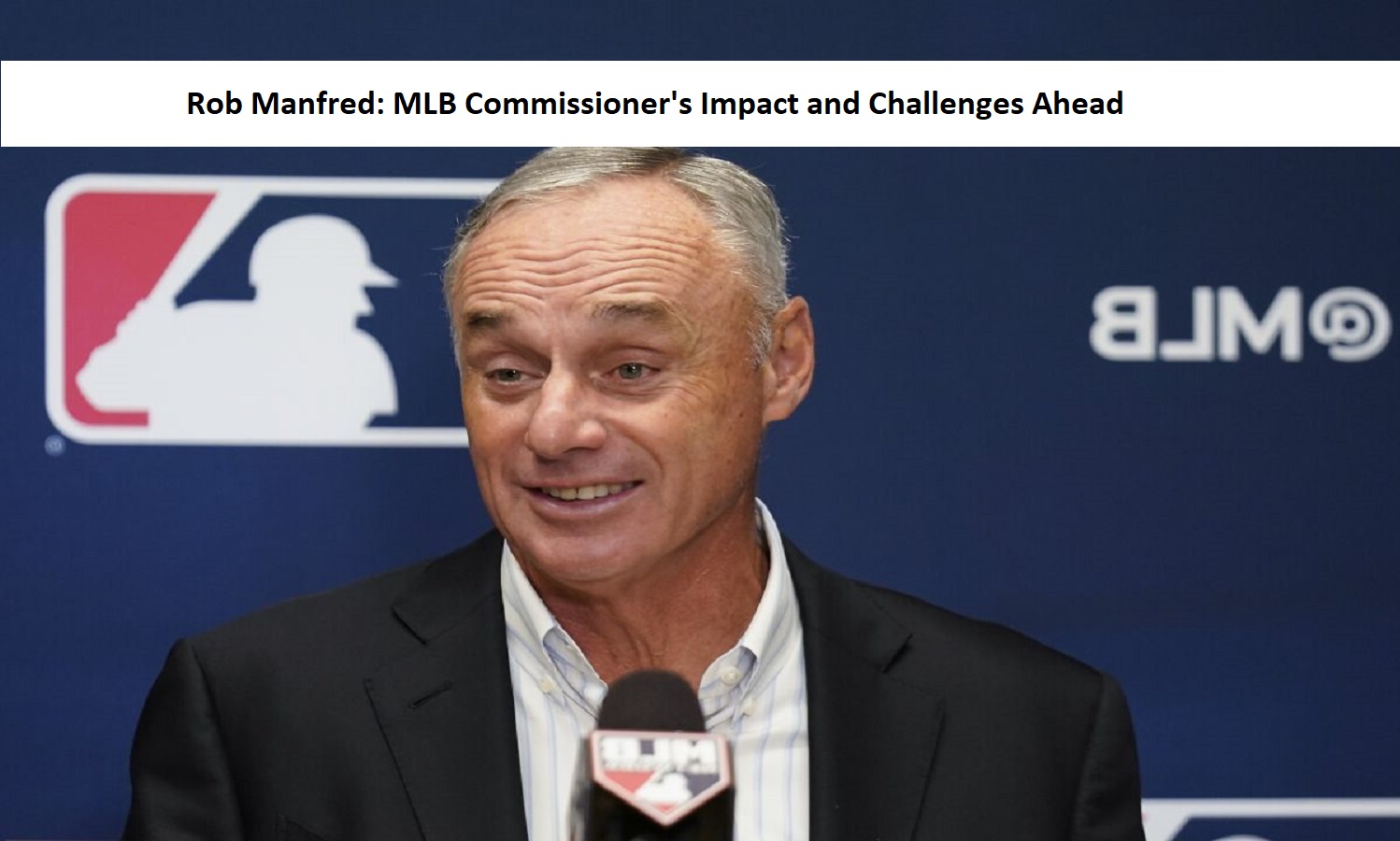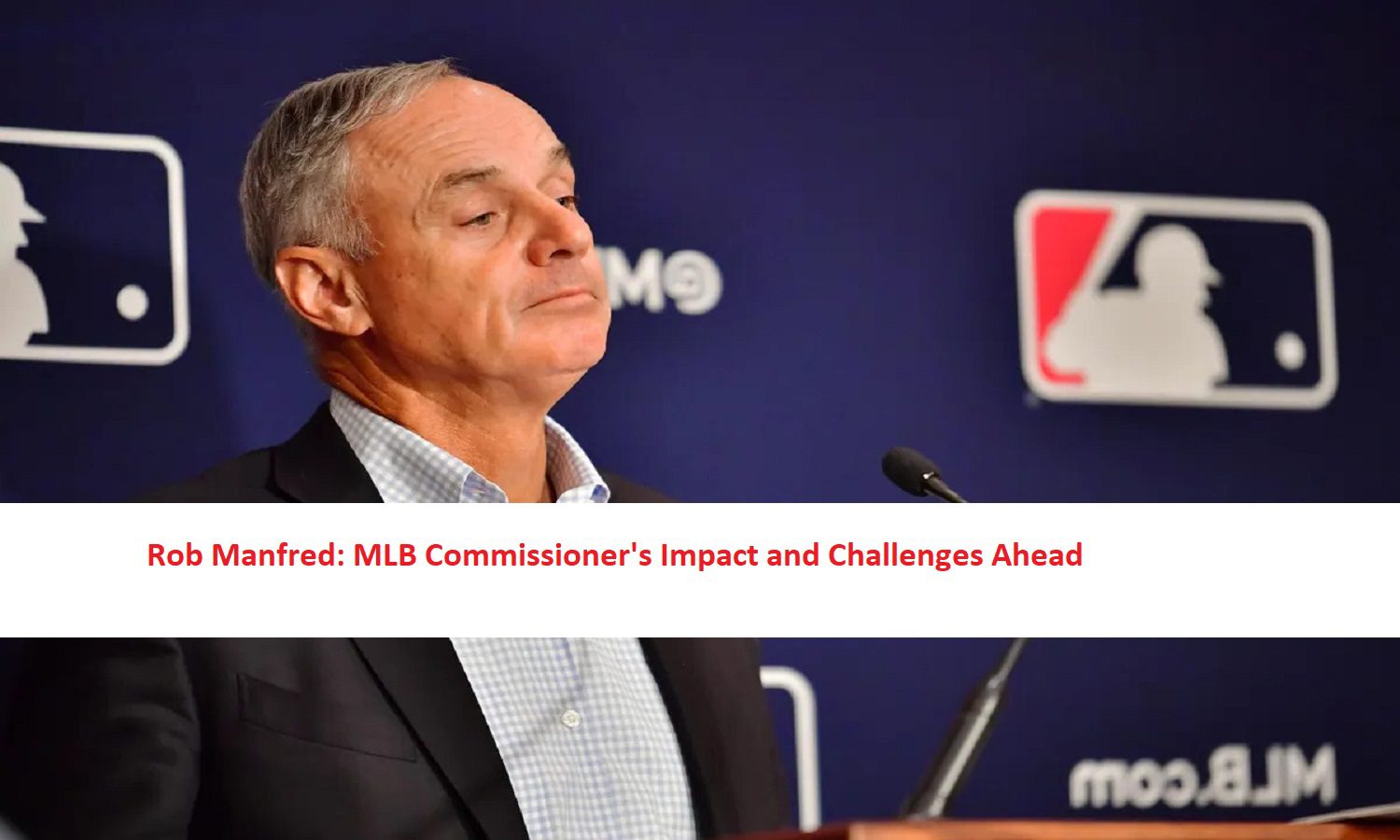Rob Manfred: MLB commissioner Rob Manfred. His swift, efficient leadership and dedication to his 30 club owners are well known. MLB revealed Manfred four-year deal Wednesday. He’s fantastic. MLB owners decided Manfred should lead MLB until 2028. He led the sport for about 15 years, longer than anybody else.
23 owners elected Rob Manfred baseball’s 10th commissioner in August 2014. He has overseen unprecedented transformation and energy since January 2015. He will be a baseball legend.
Seattle Mariners owner John Stanton oversaw Manfred’s agreement unveiling. He applauded the commissioner’s smarts, stating, “At a critical time in the history of our game, Commissioner Manfred has listened to our fans and worked closely with our players to improve America’s pastime.” Stanton commended Manfred for giving fans more action, a faster pace, a culture of innovation, and increased MLB engagement in youth baseball and softball.
MLB has profited under Manfred. Forbes and others expect Major League Baseball revenue to rise 51% from $7.8 billion in 2014 to $11 billion in 2022. Despite a pandemic, aging fans, and TV distribution changes. The league’s national TV partnerships with Fox, Turner, and ESPN generate approximately $2 billion, while each team’s local TV contract generates over $100 million.
The commissioner wants to develop new revenue streams since the present economic model may be at risk. MLB’s profits have increased as it now lets 14 teams compete in the playoffs and lets shoe makers advertise on club sleeves and shirts. Gaming deals, once illegal, are now prevalent. MLB finances improved. Owners profit more than the game since the real estate market changes.
Manfred often prioritizes the owner. The commissioner’s Houston Astros sign-stealing penalty was predicated on owner Jim Crane’s innocence. Private photo. Manfred supported Oakland A’s owner John Fisher’s new field concept, even though there were better options. Manfred prioritized owners’ delight over supporters’ wrath about losing their team. He endured abuse from club owners.
Manfred has sought to improve games as commissioner. His ideas, including the pitch clock and the runner-on-second rule for extra innings, were initially rejected but ultimately approved. The commissioner handled complaints and garnered support.
Manfred’s treatment of players and fans damages him despite his success. He was criticized for calling the World Series trophy a “piece of metal” and being nasty to protesting fans. He was also criticized for proposing an outdated luxury tax cap and instituting a lockout, which made it difficult to get along with players and fans.


Manfred has met with players to get to know them. This collaboration produced a domestic abuse policy and MLB joint bargaining agreement.
Because he got along with all 30 owners and kept and grew their riches, Manfred stayed commissioner for four more years. Baseball future depends on his flexibility, financial acumen, and loyalty to team owners.
Also Read: Variety Retraction CNN : Calls Faces For Drama Story Unravels
Our Reader’s Queries
How much does the MLB commissioner make a year?
The league raked in a whopping $10.8 billion in revenue last year, topping the previous record of $10.7 billion set in 2019. As for Manfred’s earnings, it’s unclear how much he’ll take home with his extension. In 2020, he earned a salary of $17.5 million, plus hefty bonuses.
How long will Manfred be Commissioner?
Manfred, Jr. took the helm as the 10th Commissioner of Major League Baseball on August 14, 2014, after being voted in by the 30 Major League Clubs. He officially stepped into the role on January 25, 2015. An extension in July 2023 means Manfred will continue to lead the sport through January 25, 2029.
What college did Rob Manfred go to?
Manfred attended Le Moyne College from 1976 to 1978, then moved to Cornell University. He received his Bachelor of Science from Cornell’s School of Industrial and Labor Relations in 1980, and his Juris Doctor from Harvard Law School in 1983, where he served as an editor of the Harvard Law Review.
How do I contact Rob Manfred?
Contact Rob Manfred’s office at (212) 931-7800 for information on his recent education.

